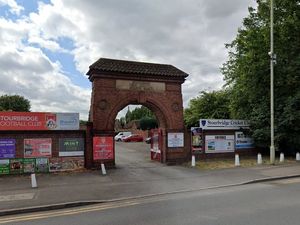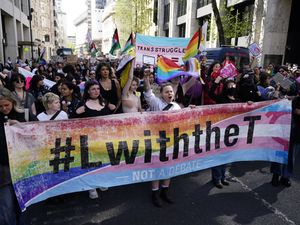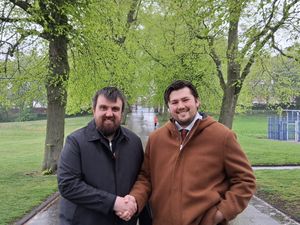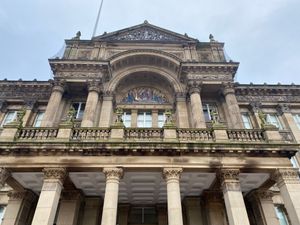Budget live: Highlights of the Chancellor’s speech
Rishi Sunak has pledged funding for the NHS, building safety, maths schools, major roads and flood defences.
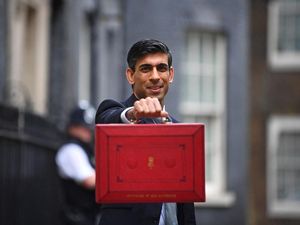
Chancellor Rishi Sunak has delivered his Spring Statement to MPs.
On a day when the Bank of England announced an interest rate cut to 0.25% to help mitigate the economic impact of the coronavirus, Mr Sunak unveiled a £30 billion package to stimulate the economy.
Here’s the latest:
2.12pm
The UK Cladding Action Group welcomed the statement and said it looked forward to hearing more details.
2.06pm
Education Secretary Gavin Williamson said he was delighted with the Government’s commitment to “level up” skills.
2.05pm
Shadow education secretary Angela Rayner said the UK “deserves better” and added that the Tories “should be ashamed”.
2.03pm
The Labour leader said the Government’s claim of the largest increase in public spending was “smoke and mirrors”.
He said: “As a percentage of GDP it only returns us to the levels we had before the Conservatives slashed investment so drastically in 2010.”
He criticised planned roads investment and said a “green industrial revolution” is needed to tackle climate change.
He added: “The Government has maintained the freeze on fuel duty without lowering bus and rail fares, showing complacency about the climate emergency.”
2.02pm
Jeremy Corbyn responds to the Chancellor’s Budget.
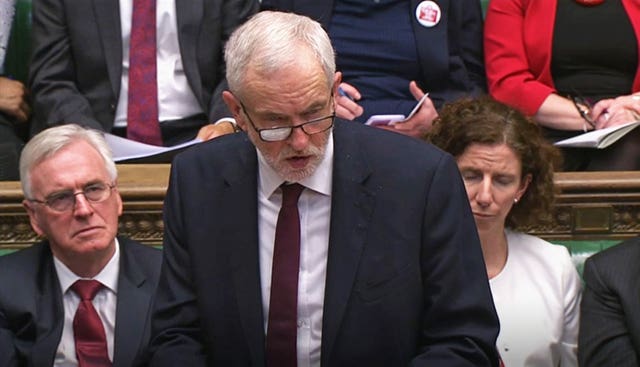
2.01pm
Mr Corbyn said across the NHS there were 100,000 staff vacancies and public health budgets had been “slashed” by £1 billion in recent years.
He said: “Public health is based on the principle that prevention is better than cure, but this Government is providing money only after a serious outbreak is under way.
“It is vital that the Government doesn’t wait a few months, but comes up now with answers to ensure that care workers do not lose out for staying away from work if they experience the symptoms.”
1.56pm
Mr Corbyn added: “Today’s Budget was billed as a turning point, a chance to deliver, in particular on the promises made to working-class communities during the general election. But it doesn’t come close.
“Having ruthlessly forced down the living standards and life chances of millions of our people for a decade, the talk of levelling up is a cruel joke.
“The reality is that this is a Budget which has an admission of failure – an admission that austerity has been a failed experiment. It didn’t solve our economic problems, but made them worse, that held back our own recovery and failed even in its own terms.
“Today’s measures go nowhere near reversing the damage that has been done to our country.”
1.55pm
1.54pm
1.50pm

1.46pm
Labour leader Jeremy Corbyn warned that fighting the cornavirus will be “much tougher because of the last 10 years of deeply damaging and counter-productive cuts to all of our essential public services”.
“We are going into this crisis with our public services on their knees and, as today’s figures confirm, with a fundamentally weak economy which is now flat-lining with zero growth even before the impact of coronavirus,” he told MPs as he responded to the Budget.
1.44pm
Mr Sunak is congratulated by colleagues and Boris Johnson after concluding his speech.
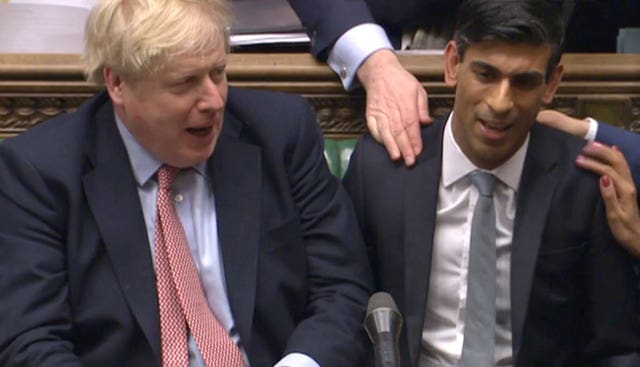
1.42pm
Mr Sunak’s predecessor Sajid Javid listens to the Budget speech in the House of Commons.
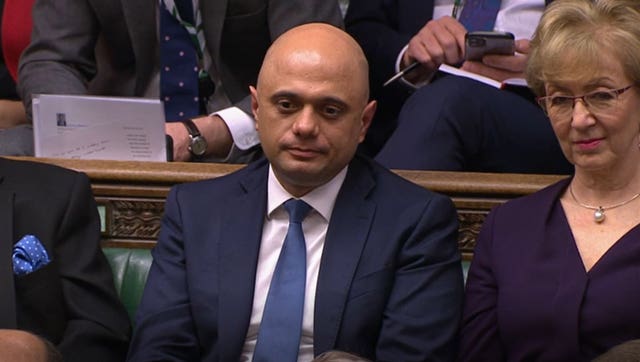
1.41pm

1.38pm
Mr Sunak sat down from his Budget statement at 1.37pm.
1.35pm
Mr Sunak pledged a package of measures to benefit the NHS including clamping down on “aggressive tax avoidance, evasion and non-compliance” with extra funding for HMRC to secure £4.4 billion of extra revenue.
He also announced £6 billion of new funding to support the NHS over this parliament.
1.34pm
1.33pm
The Chancellor said corporation tax will not be cut this year and will remain at 19%.
1.32pm
Mr Sunak announced a £1 billion building safety fund to ensure all unsafe combustible cladding is removed from buildings above 18 metres tall.
1.31pm
The Chancellor announced he was abolishing VAT on books, newspapers, magazines and academic journals from December 1.
1.30pm
1.29pm
1.28pm
Mr Sunak said he was providing every region in the country with funding for special 16-19 maths schools, an average of £25,000 per year for secondary schools to invest in arts activities and £30 million a year to improve PE teaching.
1.26pm
The Chancellor said he was committing to “the biggest ever investment in strategic roads and motorway” spending more than £27 billion.
1.22pm
The Chancellor said he will establish Treasury offices in Scotland, Wales and Northern Ireland and open a new “economic campus” in the north with more than 750 staff.
He said he will provide an additional £640 million for the Scottish Government, £360 million for the Welsh Government, £210 million for the Northern Ireland executive and £240 million for new city and growth deals.
1.20pm
PA video of Mr Sunak summarising the Government’s response to coronavirus.
1.19pm
Mr Sunak said 30,000 hectares of trees will be planted over the next five years and 35,000 hectares of peatland will be restored.
1.17pm
Mr Sunak said he will make £120 million available immediately to repair all defences damaged in the winter floods.
He added he will provide £200 million directly to local communities to build flood resilience and will double investment in flood defences over the next six years to £5.2 billion.
1.14pm
Mr Sunak said he would freeze the levy on electricity from April 2022 and raise the levy on gas to help tackle the climate crisis.
He said he will introduce a “plastics packaging tax” charging manufacturers and importers £200 per tonne on packaging made of less than 30% of recycled plastic.
1.13pm
Mr Sunak said research and development investment will be increased to £22 billion a year.
£1.4 billion will be invested in the science institute at Weybridge, which is analysing samples of cornavirus, and more than £900 million in nuclear fusion, space and electric vehicles.
1.11pm
Mr Sunak said research and development investment would be increased to £22 billion a year.
1.10pm
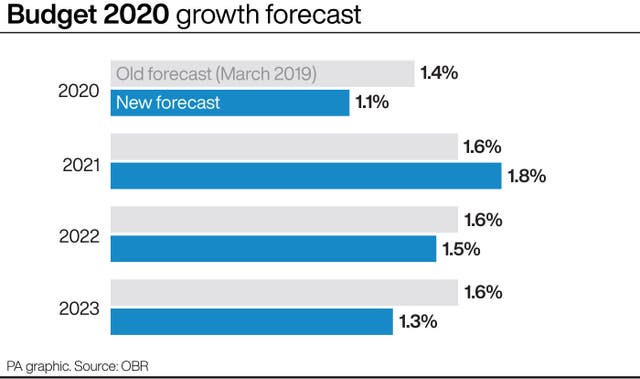
1.09pm
Beer duty will also be frozen, the Chancellor said, as he confirmed that the tampon tax would be abolished.
1.08pm
Mr Sunak announced that fuel duty will remain frozen for another year.
The planned increase in spirits duty will be cancelled and duties for cider and wine drinkers will be frozen as well.
1.08pm
The National Insurance threshold will increase from £8,632 to £9,500.
1.07pm
1.06pm
The Chancellor said ministers would publish a new remit for the independent Low Pay Commission to have a formal target of the National Living Wage reaching two-thirds of median earnings by 2024 “as long as economic conditions allow” – a rate of more than £10.50 an hour.
1.04pm
Mr Sunak met Bank of England governor Mark Carney this morning ahead of the Commons statement.
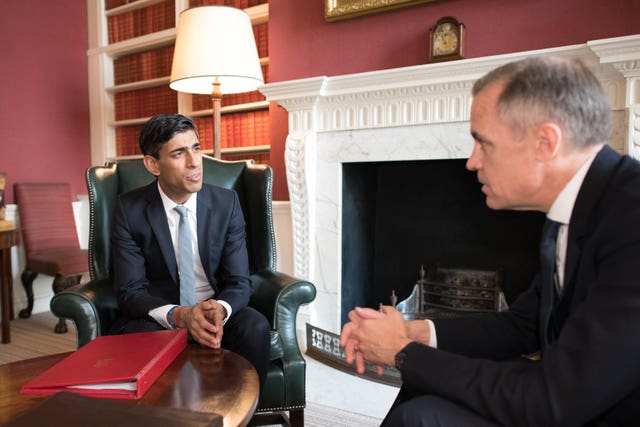
1.03pm
1.01pm
Mr Sunak said the OBR forecasts that headline debt will be lower at the end of this parliament than it is currently, falling from 79.5% this year to 75.2% in 2024/25.
1.00pm
The Chancellor said the OBR reports that borrowing will then fall to 2.5%, 2.4% and 2.2% in the following years.
12.59pm
The Chancellor said the OBR reports a current budget surplus in every one of the next five years, with borrowing increasing from 2.1% of GDP in 2019/20 to 2.4% in 2020/21 and 2.8% in 2021/22.
12.58pm
12.57pm
The Chancellor said that without accounting for the impact of coronavirus, the Office for Budget Responsibility has forecast growth of 1.1% in 2020, 1.8% in 2021 and then 1.5%, 1.3%, and 1.4% in the following years.
12.55pm
Mr Sunak said the Office for Budget Responsibility has “slightly reduced” its forecast for GDP growth compared with its March 2019 forecast.
12.54pm
12.53pm
12.52pm
Mr Sunak said he was setting aside a £5 billion emergency response fund to support the NHS and other public services, adding he “will go further if necessary”.
12.51pm
12.49pm
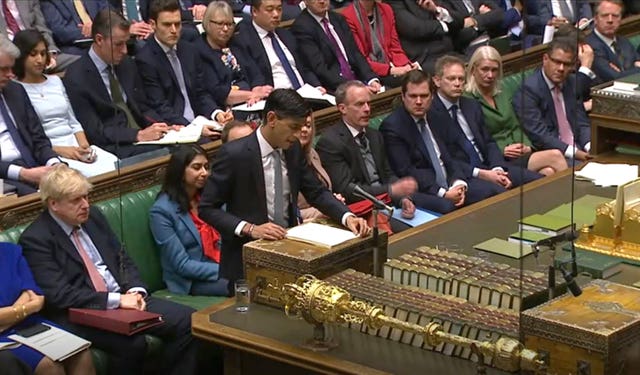
12.46pm
The Chancellor said the Government will meet the cost for businesses with fewer than 250 employees, to provide statutory sick pay to those off work “due to coronavirus”.
12.45pm
Mr Sunak said: “Those on contributory employment and support allowance will be able to claim from day one instead of day eight to make sure that time spent off work due to sickness is reflected in your benefits. I’m also temporarily removing the minimum income floor in Universal Credit.”
12.43pm
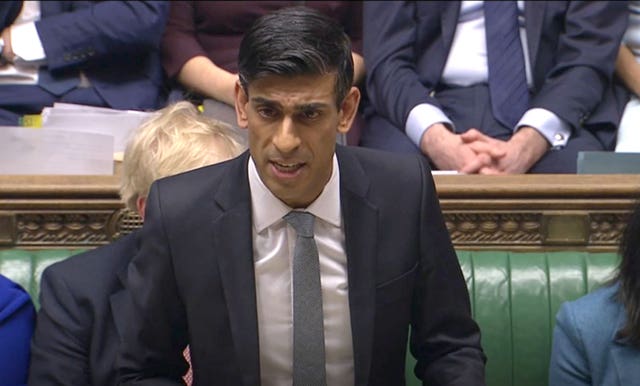
12.42pm
Mr Sunak said that “whatever extra resources our NHS needs” to cope with the coronavirus “it will get”.
12.41pm
The Chancellor said the Government’s response to the coronavirus will be “temporary, timely and targeted” and designed to have “maximum impact”.
12.39pm
Mr Sunak said there is likely to be “temporary disruption” to the economy while up to a fifth of the working age population could be off at any one time.
12.36pm
Mr Sunak said “we are doing everything we can to keep this country and our people healthy and financially secure” as he delivered his Budget against the backdrop of the coronavirus crisis.
12.34pm
The Chancellor of the Exchequer rose to deliver his Budget to the House of Commons at 12.34pm.
12.15pm
PA video of Mr Sunak leaving Downing Street.
11.58am
Labour figures have called on the Chancellor to offer support for residents forced to pay for cladding removal from their flats.
11.53am
Mr Sunak with departmental colleagues on Downing Street.
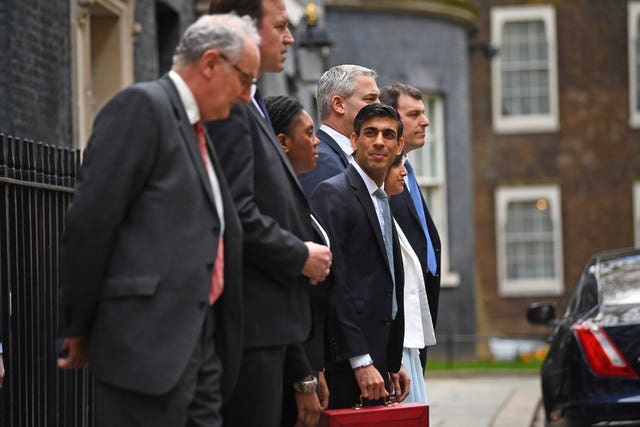
11.37am
Mr Sunak has left 11 Downing Street to head to the House of Commons.
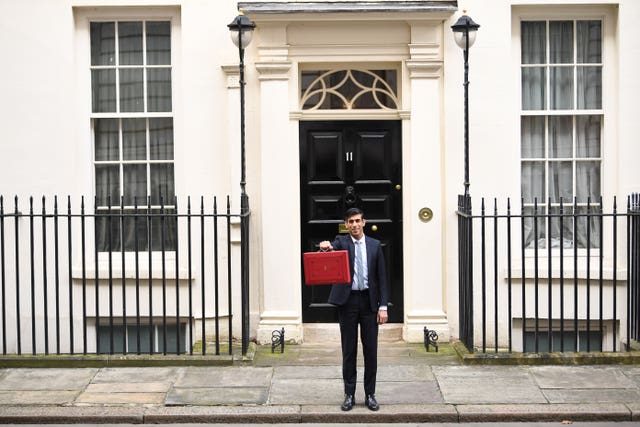
11.09am
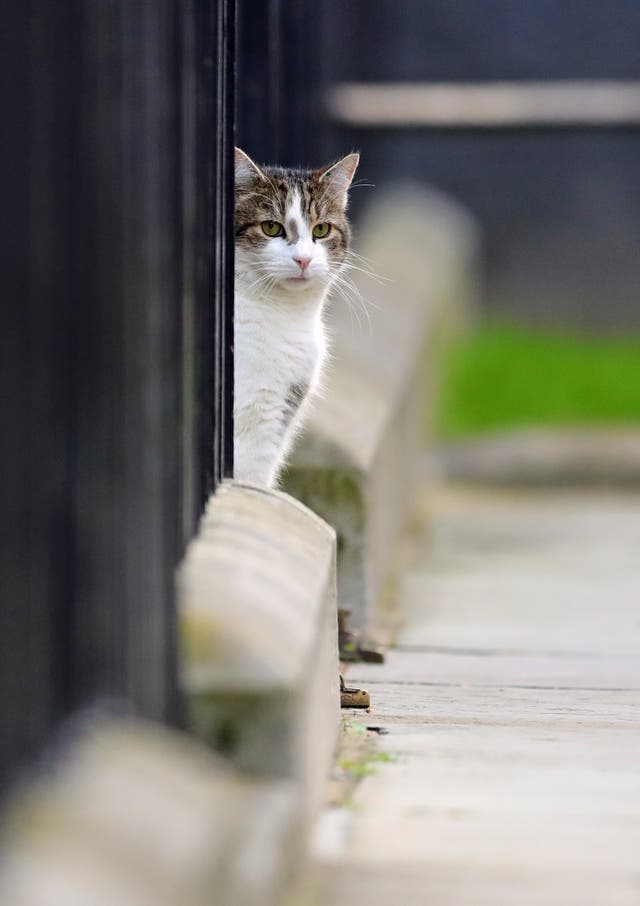
10.29am
Mr Sunak told the Cabinet his Budget’s measures to cope with Covid-19 “will make the UK one of the best placed economies in the world to manage the potential impact of the virus”, Downing Street said.
10.17am
The economy stayed flat in January despite predictions that it would grow by 0.2% following a tough year, figures showed.
The Office for National Statistics said GDP remained unchanged after growing 0.3% in December, dashing hopes that the economy was bouncing back after a clear win for the Conservatives in December’s election.
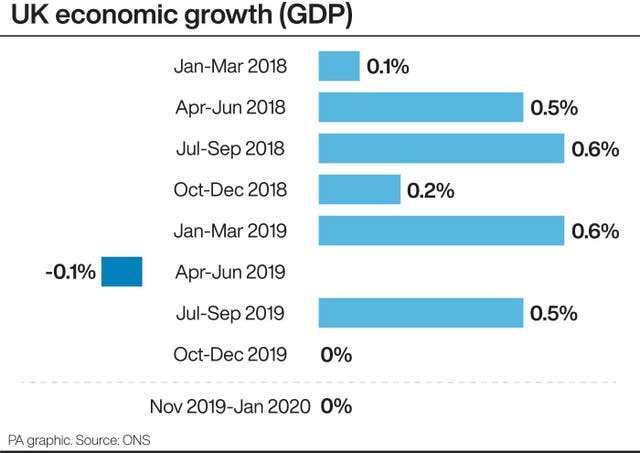
8.02am
The Bank of England announced an emergency interest rate cut to help the UK cope with the economic shock from coronavirus as Rishi Sunak prepared to unveil his first Budget.
Hours before he was due to unveil his package, the Bank set the scene with the rate cut from 0.75% to 0.25% and a series of other measures to help businesses and households through an economic shock “that could prove sharp and large, but should be temporary”.

